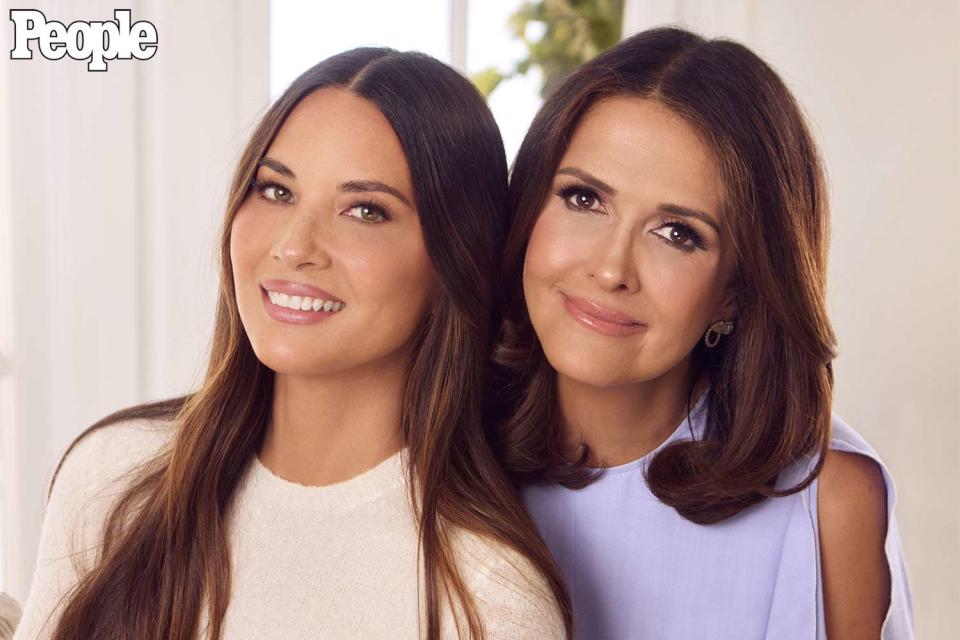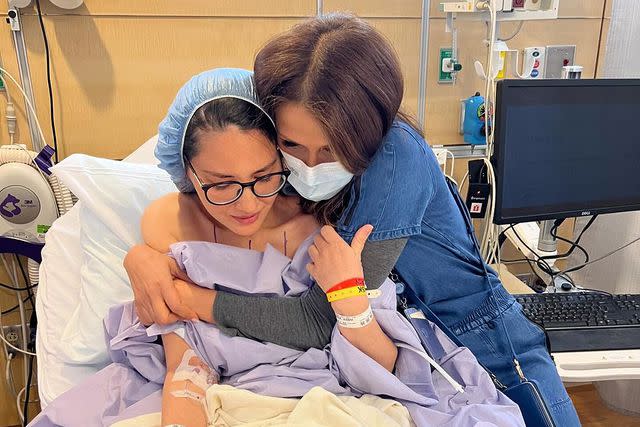What Olivia Munn's Doctor Wants You to Know About Your Breast Cancer Risk Assessment Score (Exclusive)
Dr. Thaïs Aliabadi, who discovered Olivia Munn’s breast cancer, says helping women understand tools for prevention is her “mission in life”

One in eight women will develop breast cancer in her lifetime. And while mammograms successfully identify 80 percent of breast cancers, and are considered the gold standard in breast cancer detection, “you’re still missing 20 percent of patients,” says Dr. Thaïs Aliabadi, a board certified obgyn—and Munn’s doctor. Olivia Munn was in that 20 percent: she had a clear mammogram three months before a bilateral breast cancer diagnosis and had recently tested negative for the BRCA gene.
To help close that gap, Aliabadi, who co-hosts the SHE MD podcast on women’s health issues, recommends women take a lifetime breast cancer risk assessment test by utilizing the free Tyrer-Cuzick test available online, learn about their screening options, and share the results with their doctors. “Because physicians are not calculating this lifetime risk of breast cancer, I made it my mission in life to make sure every woman can calculate it at home,” she says.
What is a lifetime breast cancer risk assessment?
The Tyrer-Cuzick risk calculator is how Aliabadi identified Munn’s lifetime risk level within minutes. Based on a variety of factors—including family history, the date of a woman’s first period, breast density and her age when her first child was born—the free tool estimates a woman's risk of developing invasive breast cancer within the next 10 years and within her lifetime. Your score arms you with key information that can profoundly impact your course of treatment, Aliabadi says.
What happens after I calculate my score?
A lifetime risk score of 20 percent or more suggests high risk, and additional diagnostic screening may be required. “Because mammograms diagnose 4 out of 5 cancers, high risk patients need additional MRI screenings,” says Aliabadi, who offers action plans based on your score on her site (patients should also check with their doctors).

Olivia Munn/Instagram
Dr. Thais Aliabadi (right) with Olivia Munn in May 2023.Munn’s score was an alarming 37.3 percent, in part because her grandmother and two aunts had the disease and she welcomed her first child after age 30. The MRI that Aliabadi ordered after she calculated Munn’s Tyrer-Cuzick lifetime risk score identified tumors in her right breast and ultimately one in her left. Biopsies identified the cancer Munn had as luminal B—a fast-moving, aggressive cancer discovered at stage 1. “If it wasn’t for Dr. Aliabadi, I’d still be going through life not knowing that I had breast cancer,” Munn tells PEOPLE in this week’s cover story.
Are those additional screenings covered by insurance?
According to the American Cancer Society, most private insurance plans cover MRIs and other tests for women at high risk. That's why Aliabadi considers knowing your risk level critical information that women need to effectively advocate for themselves. “Just like you know your name and date of birth, I want every woman to know her lifetime risk of breast cancer,” she says.
What else should I know about breast cancer prevention?
If you have a family history of cancer, “it's important to talk to your doctor about genetic cancer testing,” says Aliabadi, whose office recommends patients starting at age 25 take the MyRisk Hereditary Cancer Test, which includes free genetic counseling and evaluates 48 genes associated with hereditary cancer risk. The test, which is in-network with most commercial insurance plans according to its site, also calculates your lifetime risk breast cancer score.
For more of Munn's exclusive interview, pick up this week's issue on PEOPLE on newsstands Friday.
For more People news, make sure to sign up for our newsletter!
Read the original article on People.

